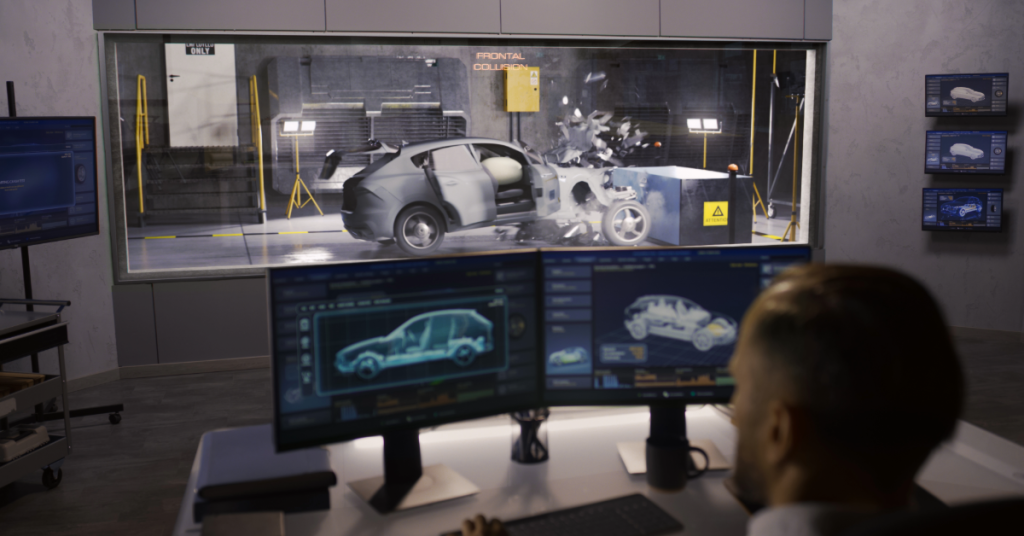Looking for a reliable and affordable used car under $15,000? This guide lists the top affordable used cars, known for their longevity, fuel efficiency, and safety, ensuring you get great value for your money.

Before stepping into a used car dealer, know the potential pitfalls. This guide will help you understand dealer tactics, hidden fees, and financing tricks, ensuring you make an informed purchase decision.

Purchasing a used car can be both thrilling and a significant financial decision, with average prices nearing $28,000. However, the process is fraught with hidden challenges that dealers may not always disclose upfront. Dealers are required to display a Buyer’s Guide on every used car, which informs about warranties and the car’s condition, but this is just the tip of the iceberg.
Before visiting a dealership, research the desired vehicle’s specifications, history, and potential additional costs. Obtaining written out-the-door price quotes from dealers can help confirm pricing and alert you to hidden fees. Check a dealer’s reputation via consumer protection agencies to avoid problematic dealerships.
Armed with this knowledge, you’ll be better prepared to face the challenges ahead.
Many used cars are sold “as is,” which means the buyer takes on all responsibility for any repairs after the sale. This clause can be a double-edged sword. While it might allow for a lower purchase price, it also means that any issues that arise after you drive off the lot are entirely your problem. Dealers may gloss over this, emphasizing the positives while leaving out the potential for costly surprises.
Understand the risks associated with the “As Is” clause. Request a detailed inspection report and consider an independent mechanic’s evaluation. This small investment can prevent significant headaches and expenses later.
Awareness of this clause and its implications can shield you from unexpected repair bills and help you make an informed decision.

Dealer markups on interest rates are a common practice in used car financing. Dealers often add a markup to loan interest rates, typically ranging from 1% to 2%, which can lead to significant extra costs for borrowers. This markup, also known as ‘dealer reserve’ or ‘finance reserve’, is a commission that the dealer earns for arranging the financing, and they are not required to disclose this to customers.
The average markup on an auto loan can reach approximately $2,109, highlighting the potential financial impact on buyers. These undisclosed markups can make dealership financing more costly, so securing a loan independently might be more economical. This can help you avoid hidden costs and secure a better interest rate, saving you money in the long run.
Profit from financing is now on par with profit from selling vehicles, underscoring the importance of being aware of financing costs. Additional markups on ancillary products such as vehicle service contracts can range between $600 to $2,000, depending on dealer pricing.
Shop around for financing options and compare rates from different lenders to get the best deal possible.
Extended warranties are often pushed by dealers because they are a high-margin add-on. While the idea of extra protection might sound appealing, these warranties often provide limited coverage and come with a high cost. The profitability of these warranties for dealers means that they might not always be in the best interest of the buyer.
Evaluate the coverage and limitations of an extended warranty before committing. Often, the coverage is not as comprehensive as one might assume, and the cost can outweigh the benefits.
Decide if the peace of mind from an extended warranty justifies the price and explore third-party warranties for better value.
Certified Pre-Owned (CPO) vehicles are marketed as superior options due to rigorous inspections and extended warranties. However, this certification often comes with a higher price tag. While the idea of a thoroughly inspected vehicle can be reassuring, the reality is that CPO cars are not always the best deal.
Weigh the benefits of CPO status against the additional cost. Even with certification, have the vehicle independently inspected to uncover any hidden issues. This step can offer peace of mind and prevent overpaying for perceived added security.
The “Four-Square” tactic is a common technique dealers use to manipulate monthly payments, trade-in value, price, and financing. This method distracts buyers from the actual vehicle price by focusing on multiple elements, obscuring the true cost.
This tactic typically involves a worksheet divided into four sections: trade-in value, down payment, monthly payments, and the vehicle’s price. Salespeople may adjust trade-in values or monthly payments during negotiations, often increasing the vehicle price without the buyer realizing. The technique can lead buyers to believe they have negotiated a better deal, while the vehicle’s price may have actually risen, making it seem like a good time to sell.
Protect yourself from this tactic by focusing on one element at a time during negotiations. Begin with the vehicle’s total price and understand how each component affects the overall cost. Breaking down the negotiation process into manageable parts helps avoid confusion and ensures a fair deal.
Dealers often use a clean Carfax report to assure buyers, but these reports don’t always tell the full story. Carfax reports rely on reported information, so some accidents or repairs might not be included. Therefore, a clean vehicle history report does not necessarily mean the car has a spotless history.
Get an independent inspection before purchasing a used car to protect yourself. This additional step can uncover any hidden issues that the search Carfax report might have missed.
A clean Carfax report is a good starting point but should not be the sole factor in evaluating a used car.
Dealerships often include fees like “documentation fees,” “dealer prep fees,” and other charges that can significantly increase the price. These fees are often presented as non-negotiable, but many can be negotiated.
When reviewing the final price, question these fees and ask for reductions or removal. Dealers may negotiate these fees to close the sale, especially if you show you are informed and prepared to walk away.
Awareness of these negotiable fees can save you a significant amount of money.
The price listed on the car, often based on the manufacturer’s suggested retail price (MSRP), is just the starting point for negotiations. Market conditions, like vehicle popularity and dealership inventory, influence the negotiability of a car’s price. Dealerships expect buyers to negotiate, and you can often get a lower price with the right approach.
Negotiate effectively by gathering multiple price quotes from different dealerships and focusing on the purchase price rather than monthly payments. This approach ensures clarity and prevents confusion during negotiations. Knowing the vehicle’s market value serves as a basis for negotiation, giving you more confidence in your bargaining position.
Other aspects of the car purchase, like trade-in values and financing terms, can also be negotiated beyond just the sticker price. Dealers may include additional fees or add-ons that are also negotiable, affecting the final sale price. Being prepared and informed boosts confidence during negotiations and can lead to better pricing outcomes.

In some states, lemon laws don’t apply to used cars, and dealers are well aware of this loophole. These laws, designed to protect consumers from defective vehicles, often have limitations for used cars. This means that buyers need to be extra cautious and thoroughly check the vehicle’s condition before making a purchase.
Check your state’s specific lemon laws and be aware of any dealer promises regarding the car’s quality or condition. Understanding these laws helps protect you from purchasing a lemon and ensures you know your rights as a consumer.
Being informed before visiting a dealership is crucial to avoid common traps. Establishing a budget, researching financing options, and understanding your trade-in’s true value are essential steps in this process. Doing your homework and approaching the car-buying process with confidence can save money and prevent frustration.
The goal is to protect yourself and ensure you make a wise investment. With the knowledge from this guide, navigate the used car market like a pro, making informed decisions that benefit you in the long run.
In summary, buying a used car involves many hidden aspects that can impact your financial decision. From understanding the “As Is” clause to navigating dealer markups on financing, each step requires careful consideration. Extended warranties, Certified Pre-Owned vehicles, and the “Four-Square” tactic are all areas where buyers need to be vigilant.
Ultimately, being informed and prepared is key. By following the tips in this guide, you can approach the car-buying process with confidence, ensuring you get the best possible deal and avoid common pitfalls. Use your newfound knowledge to make a smart, informed purchase that meets your needs and budget.
The “As Is” clause indicates that the buyer assumes all responsibility for repairs after the sale, which can result in unforeseen expenses due to undisclosed issues with the vehicle.
To avoid dealer markups on financing, proactively shop around for loan options and compare rates from various lenders before visiting the dealership. This approach helps you secure a better deal and minimizes unnecessary costs.
Extended warranties are generally not worth the cost due to their high margins and often limited coverage. It’s crucial to assess the specific terms and evaluate whether the expense aligns with your needs before making a decision.
When considering Certified Pre-Owned vehicles, it’s crucial to evaluate the benefits of certification relative to the higher price and to arrange for an independent inspection to ensure quality.

Looking for a reliable and affordable used car under $15,000? This guide lists the top affordable used cars, known for their longevity, fuel efficiency, and safety, ensuring you get great value for your money.

Want to find out how to spot the best year-end car deals? This article will guide you through key strategies, including understanding sales cycles, leveraging manufacturer incentives, and perfect timing, ensuring you get a great deal.

The ebb and flow of the car market can significantly sway car prices, and savvy shoppers can harness these cycles to their advantage. Let’s uncover the secret times of the year that can help you save money on your next car purchase, and find out the best time of year to buy a car.

In this blog post, we’ll guide you through understanding your car budget, calculating your monthly car payment, exploring factors affecting your car loan, adopting smart shopping strategies, considering alternative financing options, and preparing for future car expenses.

Vehicle safety should always be considered when purchasing a new ride. Here are some tips on ensuring your vehicle is safe for the road.
